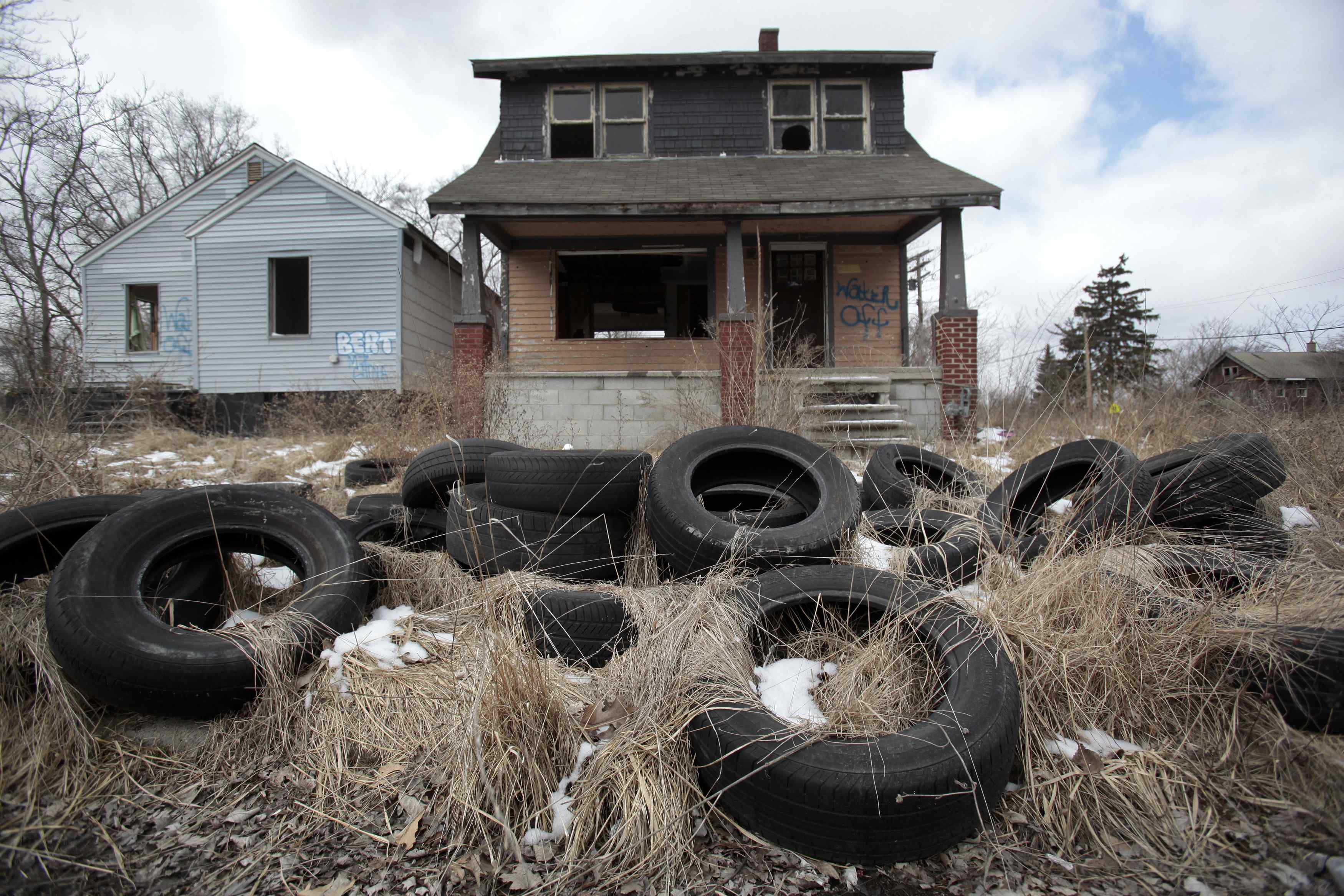Daily Stormer
March 22, 2014

Detroit is a triumph of multiculturalism and inclusion: total proof that as long as we give blacks everything, all will work out fine.
Except it doesn’t.

From the Detroit News:
With more than half of the city’s customers behind on payments, the department is gearing up for an aggressive campaign to shut off service to 1,500-3,000 delinquent accounts weekly, said Darryl Latimer, the department’s deputy director.
Including businesses, schools and commercial buildings, there are 323,900 Detroit water and sewerage accounts; 164,938 were overdue for a total of $175 million as of March 6. Residential accounts total 296,115; 154,229 were delinquent for a total of $91.7 million.
The department halts cutoffs through the winter because of complications associated with freezing temperatures, such as damaged pipes. But this spring, a new contractor has been hired to target those who are more than two months behind or who owe more than $150 — twice the average monthly bill of $75.
The department says it’s now ready to “catch up” with cutoffs halted because of the unusually harsh winter weather. DWSD is looking to show there are consequences associated with not paying water bills, Latimer said.
“Not everyone is in the situation where they can’t afford to pay,” he said. “It’s just that the utility bill is the last bill people choose to pay because there isn’t any threat of being out of service.”
People pay up more when they see the department out cutting off water to neighbors, and the statistics bear that out, officials said. In July, for example, before contractors started on the shutoffs, the department cut off 1,566 customers. That month, it collected $149,000 in water bills.
Extra contractors started working on cutoffs last summer. Attheir peak in October — before cold weather caused a halt to the disconnects — 3,700 cutoffs occurred. The department collected more than $350,000 in overdue bills that month. That number of cutoffs translated to more than double for warm weather months compared to last year.
“We’re trying to shift the behavioral payment patterns of our customer base right now,” said Constance Williams-Levye, DWSD commercial operations specialist. “And so aggressively we’ll have a team of contractors coming in, in addition to our field teams.”
Up to 20 additional contractor crews are expected to be employed working on the cutoffs, DWSD officials said.
The department bills monthly and sends out notices when bills are overdue. When an account is more than 60 days late, a notice goes out saying service could be cut, Latimer said.
Residents don’t necessarily have to move out but Latimer said there were instances, in the case of households with children, where the department of social services will come in and say the kids will be removed from the home if water is not restored.
“Usually folks will then come in and make some kind of arrangement,” Latimer said.
Long-overdue effort
Department officials say the initiative is unrelated to Detroit’s bankruptcy restructuring and is simply a renewed effort to remedy a longstanding problem. The fear of being stuck with Detroit’s delinquencies, however, has kept suburban leaders from embracing a regional water authority proposed by Emergency Manager Kevyn Orr.
Macomb County Executive Mark Hackel said the department should have started being more assertive in its collections years ago.
“It’s all about the management responsibility,” Hackel said. “If they’re just getting around to it now, what were they doing before? Collections are just part of a system that’s been neglected for years.”
On Monday, the department is scheduled to send mailings to thousands of customers warning if their overdue water balances aren’t paid, the bill would be considered a property tax lien and could result in foreclosure.
Communities pay a combination of a fixed amount per month as well as an amount for every thousand cubic feet of water — or every 7,480 gallons. Detroit residents, on average, pay about 25 percent less than suburban water customers.
The department also is tightening a policy that allows customers to make multiple partial payments on overdue accounts. That creates a situation in which some go in and out of delinquency status, Latimer said. Plans call for allowing an overdue customer only one payment arrangement per year.
